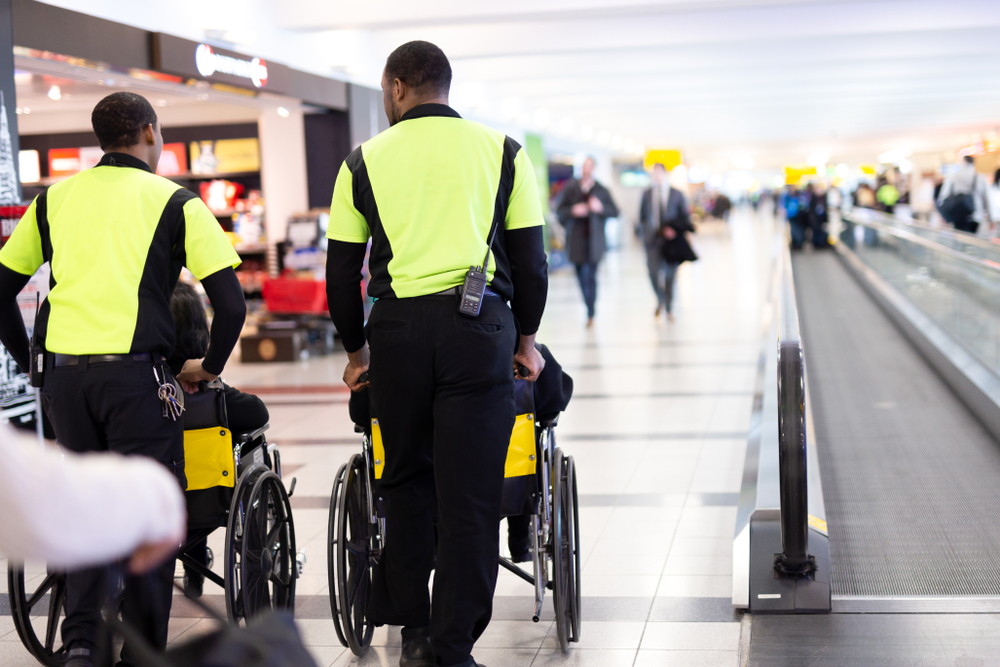Many vacationers try to take every day as it comes. Still, if you or your travelling partner has a disability, more planning can go a long way in making your vacation more enjoyable and relaxing.
At Ebenezer (NDIS registered provider in Rhodes), we work passionately towards improving and making meaningful contributions to the lives of those who need it the most. We hope this guide will be able to make your next vacation a comfortable experience!
Do your homework
The more preparation you do before you go, the more you’ll get out of your trip, as any skilled traveller will tell you. This is especially the case if you have a disability. You’ll want to learn about accessibility and medical assistance at your travel destinations and scenic spots, and must-see tourist attractions.
To research vacation spots nowadays, all you need is wifi. Accessible lodging filters are available on hotel booking sites, and airlines typically have websites dedicated to persons travelling with special needs.
Consider your requirements and what you hope to gain from your vacation. For example, if you’re in a wheelchair, learn about public transportation in the area you’re visiting – accessibility in certain nations might be hit or miss. If you’re seeing an ancient, cobblestoned village with countless steps and bumpy footpaths, you might want to learn how to navigate the streets. Some older communities have modernized their infrastructure to make it more accessible, while others have not. Google Earth is a fantastic resource for this.
When looking for a place to stay, it’s good to ask for pictures. Accessibility requirements differ by nation; you can, for example, request a photo of the restroom to ensure that it is adequate for you.
Make your flight arrangements
Airlines are required by law to meet your demands. However, especially if you use a wheelchair, it’s a smart option to reserve your flights well in advance. Some airlines limit the number of wheelchairs allowed on each domestic flight to two (or one if it’s an electric wheelchair), and if yours is such an electric wheelchair that can’t fold, there may be size limitations.
Find out if the plane links to the airport via an aerobridge when chatting with the airline. You’ll probably need to hire a hydraulic lift to go inside the cabin if it doesn’t. A few airlines levy a fee for this service.
The same is true if you’re planning to travel with a guide dog or have to bring medical equipment onboard, such as a CPAP machine or oxygen. Airlines may require you to fill out forms prior to departure, so give yourself plenty to complete this documentation.
When you make your reservation, chat with the airline to ensure that they understand your requirements and can have things prepared before you leave. It’s best to write down your plans and review them at least 48 hours before travel.
If at all possible, fly directly to your destination. This eliminates the trouble of boarding and disembarking and the possibility of having to rush through an airport to catch a connecting aircraft. However, if it is more convenient for you to divide up your flying travel into reasonable chunks, go ahead and do so.
At the airport
Airports can be stressful for those with autism, dementia, or anxiety due to their bright lights, speakers, odours, and crowds of people. Many airports are already using services such as Hidden Disabilities, which was originally tested in Australia at Brisbane Airport and is now available at Melbourne Airport. The program gives additional assistance to travellers who may require it.
Even if a program like this isn’t accessible in the airport you’re visiting; there are measures you can use to reduce the stress of traveling through a terminal. Wearing noise-cancelling headphones or bringing particular sensory objects such as fidget toys or tablet apps, for example, could be beneficial.
As a Registered Charity and NDIS Registered Provider in Rhodes, Ebenezer Mission firmly believes in empowering and equipping people with disability to be active participants in a society without barriers.
Contact us by phone at 0478 831 731, online at www.ebenmission.org.au/, or via email at info@ebenmission.org.au.



